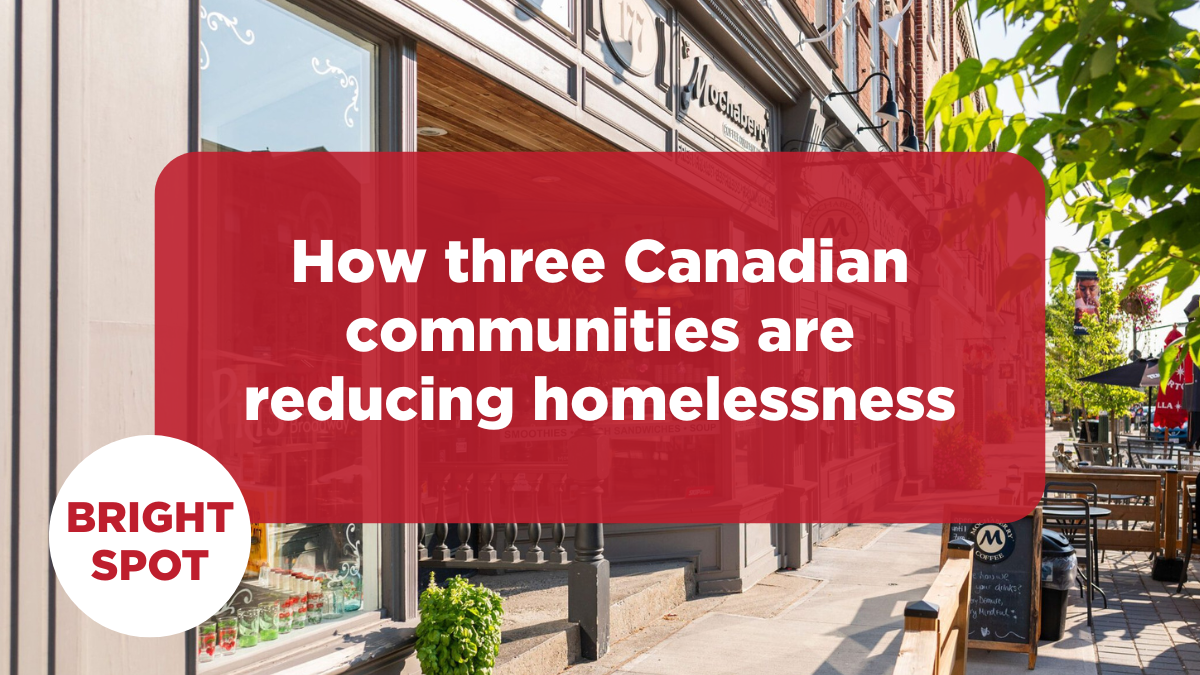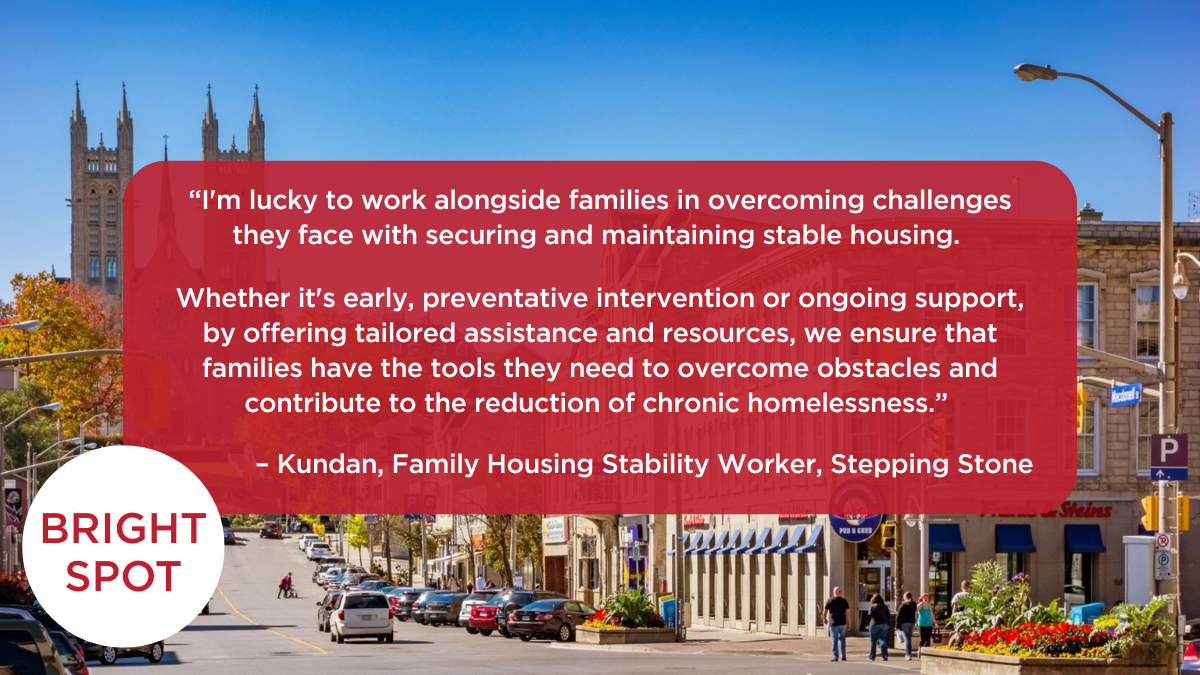
We’re shining a bright spot on three Canadian communities that have measurably reduced homelessness, proving that homelessness is solvable. Common threads in all their stories are strong leadership to stay on course, dedicated front-line staff putting their passion into practice, use of data to pivot approaches, and building strong local teams with a clear vision.
Dufferin County reduced chronic homelessness by 32% as of Feb 2025 and has remained at least 10% below their baseline month since Fall 2019.
Dufferin County has remained laser focused on ending chronic (long-term) homelessness for years. This dedicated community has sustained reductions by pivoting their energy and efforts based on the changing needs of their neighbours and trends in their By-Name Data. The community’s Coordinated Access Table comes together weekly to problem-solve the housing process and ensure coordinated and intentional housing support for each person. Their latest goal is to reduce the average length of time from entry into homelessness to exit into housing, as lowering the number of folks who experience longer-term homelessness is critical for reaching deeper reductions.
Dufferin has also sustained reductions by prioritizing housing resources for the chronic population, including allowances directly funded by the County. The homelessness team works closely with community housing and maintains relationships with private market landlords to maximize available housing options at every turn.

St. Thomas-Elgin has reduced chronic homelessness by 15% below their baseline month as of March 2025 and has sustained at least a 10% reduction for just over a year.
St. Thomas-Elgin’s small but mighty team continues to lead efforts that have been proven to support reductions. This includes strengthening partnerships across health and justice sectors; supporting folks sleeping rough to access shelter and moving 17 people directly from unsheltered homelessness to housing in less than 6 months, and; working closely with Indwell to bring more supportive housing online – most recently a third build as part of the community’s strategy and goal to functionally end all homelessness within the next three years.
Case managers also continue to streamline the housing process with over 80% of their homelessness population confirmed to having access to ID and income, making them “paper-ready”, and eliminating process barriers as they support people’s housing needs and preferences. St. Thomas-Elgin has now turned their attention on better ensuring housing stability for their neighbours who were more recently housed.

Wellington-Guelph reduced chronic homelessness by 13% between Nov 2024 and Jan 2025.
In December 2024, Wellington-Guelph held a Housing Stability System “Mapping Day” where community partners came together to identify housing needs and develop creative solutions for each person actively experiencing homelessness on their By-Name-Data. This exercise equipped Wellington-Guelph with a clear understanding of the types of housing and resources required to end homelessness for these community members. This data has previously been used to support advocacy efforts, leading to the successful creation of several new housing developments within the last few years, including Grace Gardens Supportive Housing operated by Stepping Stone, and more recently, 65 Delhi Street Transitional Housing operated by Thresholds Homes and Supports.
With improved data—such as a better understanding on whether individuals had self-resolved their homelessness or moved into housing without an update to the By-Name Data–this Southern Ontario community achieved a 13% reduction in chronic homelessness in just three months.
Another key factor in this reduction was the dedication of Kundan, a Family Housing Stability Worker from Stepping Stone, who provided vital support to families in securing stable housing. Kundan played a crucial role in assisting larger families – those with more than three people per household – during a period when the Homelessness Serving System in Wellington-Guelph saw a marked increase in families seeking support.

Wellington-Guelph has also maintained at least a 75% reduction in chronic youth homelessness from their 2018 baseline for the past year, and is sustaining an 82% reduction as of Feb 2025.
Wellington-Guelph continues to sustain measurable reductions in youth experiencing long-term homelessness through finding housing solutions that directly meet the needs of their younger neighbours. The community has more recently established a new group dedicated to identifying what it means and takes to end chronic youth homelessness. This group is currently strategically planning improvement efforts in recognition that their work needs to pivot as they reach smaller and smaller numbers. Wyndham House continues to lead the charge in ending youth homelessness, and is growing their Family and Natural Supports approaches and programs with the support of A Way Home and Making the Shift. Wyndham House is also developing a new 10-bed Supportive Housing program, set to open at the end of 2025.

